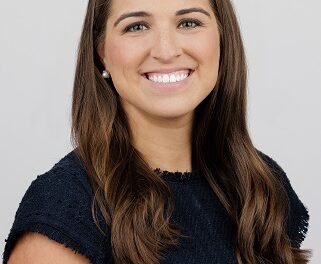By Mary C. Mayhew
I saw a sign the other day that said, “Not all heroes wear capes,” and next to those words were the outline of a medical professional in a surgical mask. It is so true, but not just because of the work our doctors, nurses, and hospital staff have performed during the pandemic; it is because of the heroic work they perform every day, whether we acknowledge it or not!
Most days, people don’t typically think of the hospital or the more than 280,000 doctors, nurses, therapists, and support staff who work there until we need them. Instead, we simply take comfort knowing they are there. But will that always be the case?
Even prior to COVID-19, hospitals across Florida and the nation faced a workforce crisis. The 24/7 hospital environment is demanding and difficult. In addition, there are many healthcare jobs outside of the hospital setting that have contributed to the workforce shortages. Then COVID-19 hit, and a bad situation got even worse.
According to a study this spring by the Florida Hospital Association, prior to the most recent surge in COVID-19, eleven percent of registered nurse (RN) positions at our hospitals were vacant. That number may not sound significant, but a single nurse may be responsible for the care of 6–8 patients in a general care setting during their shift. Thus, having one in ten nursing positions vacant results in 60–80 fewer patients that can be served or extra shifts and even longer hours for those on duty to make sure every patient receives the care they need.
Those extra shifts and hours add up and eventually take their toll. Last year one in four nurses in Florida left the field, including one in three critical care nurses. Again, a bad situation worsened as hospitals responded to record hospitalizations and the need for critical care as intensive care units were close to maximum capacity. Hospitals that already faced a shortage of nurses were now losing experienced nurses who were just packing up and leaving altogether or left to work for staffing agencies that provide nurses in Florida or around the country.
Something had to be done. Hiring more nurses seemed like an obvious choice, but there are not enough candidates out there. In fact, our survey showed more than 40 percent of our hospitals reported taking longer than 60 days to fill a nurse vacancy.
It’s no wonder burnout is taking a hold of the nurses and medical professionals in our hospitals. High vacancy rates, high turnover rates, the length of time it takes to fill a nurse opening; then add a record number of people in the hospital due to COVID-19. It’s a difficult time to be a medical professional.
So, what can a Floridian do?
Get vaccinated! One of the best ways to thank a nurse or doctor is not to see them for something you can protect yourself against, like COVID-19.
Thank them – not just on the days you need them, but whenever you encounter one of these brave men and women in your neighborhood, at church, or in the store. Thank the doctors, nurses, and staff who stayed on the job and encourage those in school seeking to enter this noble profession.
Lastly, remember that our hospitals are more than just buildings; they are about the people who deliver lifesaving care every day. Maybe your kind word of thanks or a friendly gesture will be the inspiration a doctor, nurse, or hospital staff member needs to hang on just a little longer.
Florida hospitals are responding to this shortage by increasing efforts to recruit and retain their existing staff. They are also focusing on making more nurses available to serve as faculty, expanding training slots, creating apprenticeships, and providing additional career ladders for nurses who want to move to advanced practices.
It will take everyone working together to let our tremendously talented medical professionals know that we respect their work and how much they mean to your hospital, to your family, and to our communities.
Mary Mayhew is President and CEO of the Florida Hospital Association.



























